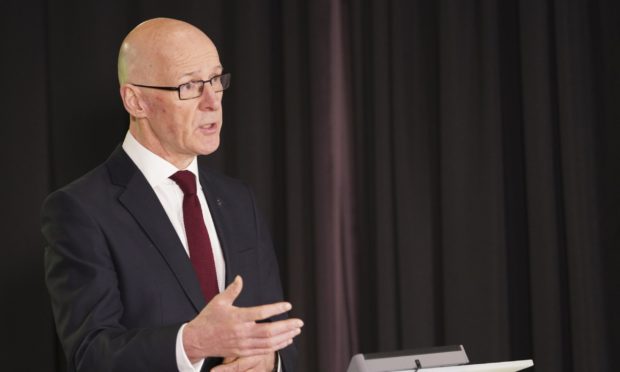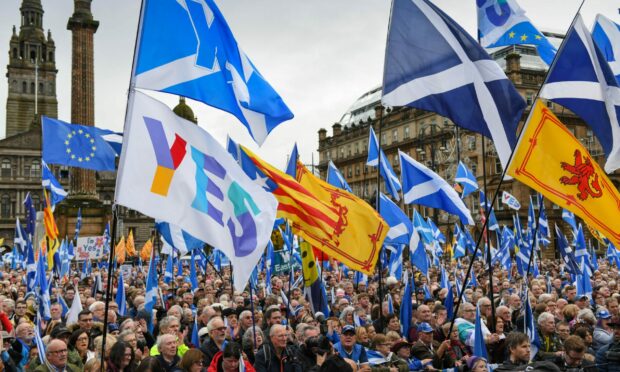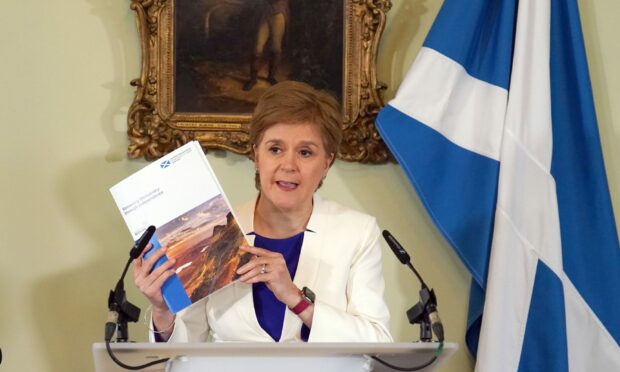John Swinney has suggested the SNP still needs to do more to convince many voters that the recent chaos at Westminster boosts the case for Scottish independence.
He admitted that independence backers needed to “engage” with the public and “motivate” them to see that the nation would be better leaving the UK.
Pointing to the “massive increases” in support for independence during the 2014 referendum campaign, the deputy first minister believed more Scots would switch to Yes when faced with having to decide the country’s future.
And he said he would be confident of victory if a referendum was held next year, as proposed.
Mr Swinney was being quizzed by Martin Geissler on the BBC’s Sunday Show about the lack of movement in the polls when it come to the constitutional question, the UK economy being plunged into turmoil during the short reign of former Prime Minister Liz Truss.
“The country is finely balanced on the question of independence,” the Perthshire North SNP MSP said.
“That’s why it’s important we engage on that topic. It’s why we motivate people to look at the implications of what United Kingdom government has delivered for Scotland.
“That’s been a combination of Brexit, which we never voted for… We’re going to be looking forward to a round of austerity that compounds the austerity that we’ve had since 2010.”
‘We’ve got to engage people’
Pressed on the Yes campaign’s failure to build a commanding lead in the polls in recent weeks, Mr Swinney said: “I think we’ve got to engage people on these questions, and to provide the information and the discussion and the debate about the future of Scotland.
“And obviously, as we saw during the referendum in 2014, when people become engaged in facing the actual question of having to decide whether they want Scotland to be an independent country, we saw massive increases in Yes support during the course of that referendum campaign.
“We went from something like 30% support at the start of the referendum to 45% support during the referendum, when people were actively engaged in the question.
“Now, today, we start from a base where support for independence is of the order of 50% within Scotland, and we have the opportunity to build on that during the debate on the questions that face our country.”
Mr Swinney was also questioned about the new economic prospectus for independence, which was published by First Minister Nicola Sturgeon last week.
Asked if it could take more than a decade to establish a new Scottish currency and gain re-entry to the EU, he said: “I don’t think that will be likely at all”.
Mr Swinney said Scotland since devolution had already established “fiscal credibility” by showing it is able to live within its resources, and the foundations would be built on by the new Scottish Central Bank.


